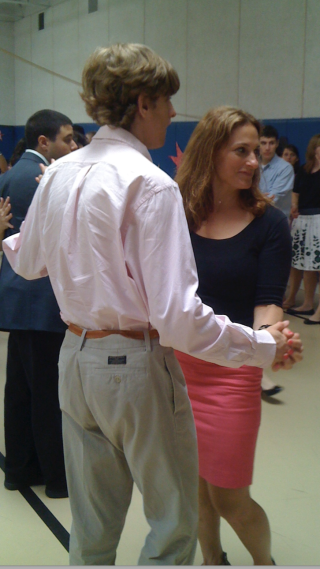Stress
Managing My Overwhelming Stress
A Personal Perspective: Teaching myself to let go, do less, step lightly.
Posted March 18, 2023 Reviewed by Abigail Fagan

The other day while I was dancing, I noticed something new. I was moving hard, heavily, as always. Every muscle was tensed or twisted into “Dancer’s Posture” (shoulders back, neck lifted, belly pulled in and up). At the same time, I was trying to remember the steps and the biggest irony, to relax. This time, however, I happened to look up at the class video, at the teacher, as I was thundering across the floor. I saw how slight she was, how light, airy, and smiley. Almost leaping, step to step. And it was not fake. She was enjoying herself while teaching, while straining so much muscle. In that moment, I found myself imitating her light step, putting some air into mine. At the same time I eased up on my posture efforts and lo and behold, it was easier. It still looked good. It felt good. And best of all, I had the energy to actually smile.
I was happy about this, but also a little mystified. Why was my body suddenly able to understand this new thing? I’d been studying and practicing dance for almost 17 years, always straining, out of breath, contorting, only to find that I didn’t have to. Was this the secret to advanced-level dance? To try less?
The experience stayed with me throughout the day. I found myself tuning in a little bit more to my body, my breathing, and noticing all of the pockets of tension. The eternal vague shoulder pain, the tension in my jaw. Sometimes I could even feel the vibration of my pulse through my veins. So much discomfort, even while lying still.
And soon I would have to get up again and swing into high gear because the weekend was here. My autistic son Nat comes home on Saturdays. At the thought of him, a wave of love slams me, imagining his face and snow-soft voice. But there’s no relief from the pounding and stress in my body. In fact, it’s worse. God help me, it’s worse. I remember I had made some connections a few weeks before between my physical pain and the emotional heaviness I always carry: a deep inexhaustible worry about my loved ones, a banked fire blown easily into a blaze. For me, fiery fear does not wait until an afterlife. Hell exists right here, right now, while we’re living, because we love.
As the hours ticked down to the moment Nat would arrive, my breathing became more rapid, shallower. I felt my upper body compacting in on itself even while I tried to take those deep cleansing breaths we’ve all heard of. And I wondered, as I dreaded the end of my free time, if there was a way to do things differently.
Could I get back to the way I had felt dancing? Why had it been so physically easy and enjoyable in those moments? The only answer I could find was in the steps. My steps had been airier, lesser. I was not connected quite so much to the actual ground. I had felt almost like a different person, in a lighter body. But it was still my body. So I know it is truly possible, within me, to feel that way again, in other times. Like when Nat gets here. Is there a way to dial back the intensity, the anxiety I feel when I look at him? The need to protect him is real. The trauma of the past—his and mine—is real. The possibilities, both scary and wonderful, are real. That stuff isn’t going anywhere. So how can I carry all of that in this 60-year-old body, but in a new and lighter way?
I can watch others and see how they do it, the way I watched my teacher springing across the floor. My husband Ned is the obvious one to emulate. He is one of those people who stays calm during even the most tumultuous times. He is often self-contained, well-balanced. He used to love the James Taylor quote, “Try not to try too hard/It’s just a lovely ride.” And when I first met him, at 18, I heard him say that, I marveled at it but also felt it was too fluffy. “You should try hard, “ I would think, “this is your one life, make it count!”
Now I’m not so sure. I have lived a life of trying my hardest, pretty much all the time, with everyone I know, everything I do. Most of all, with my children, with Nat, straining to do it right, to get it right for him so that he can live a happy healthy safe life. Happy-healthy-safe. That’s the mantra. Except if the mantra is killing me, maybe it’s time to do less? Pull back? Push less?
And step more lightly.


